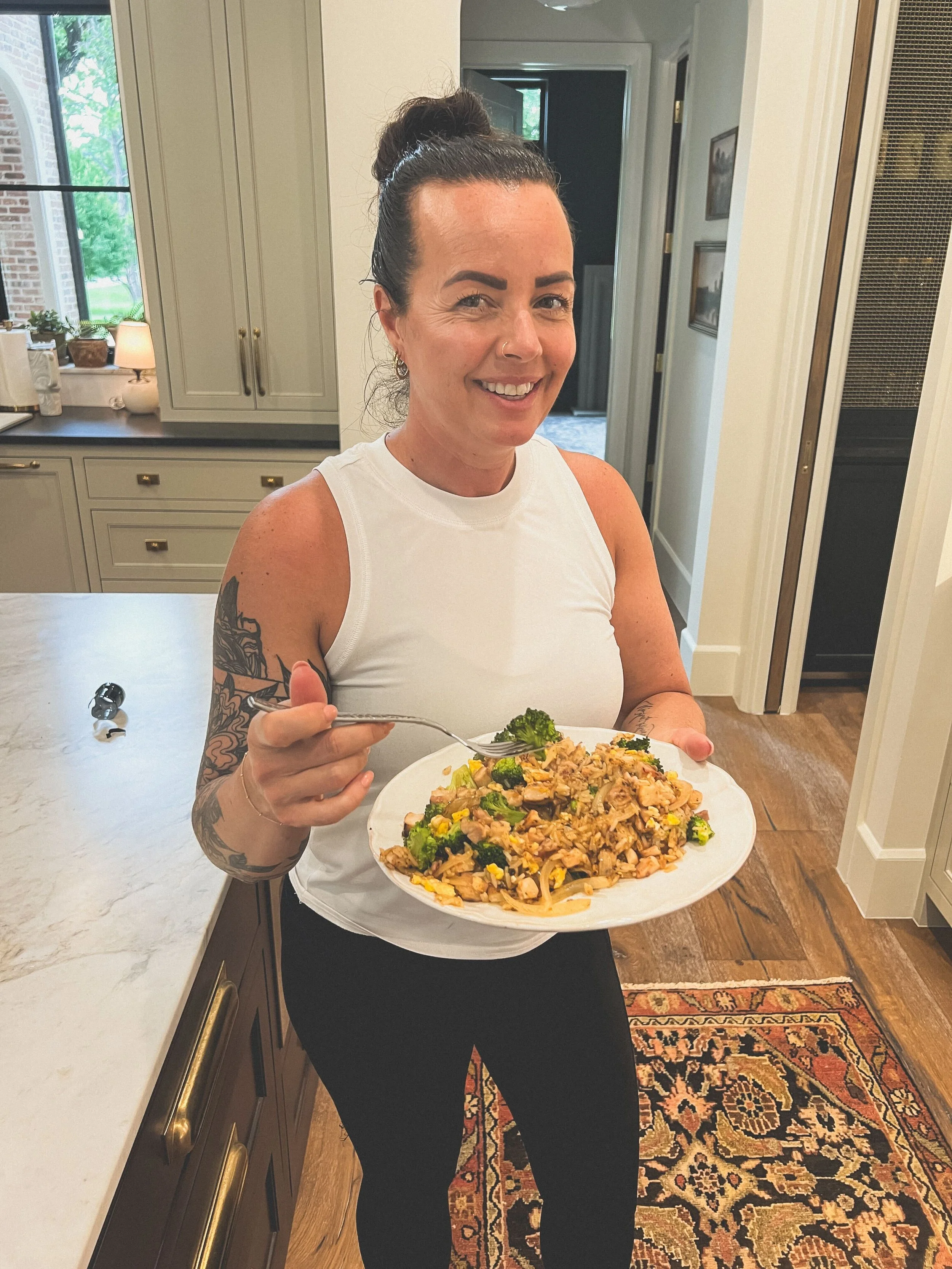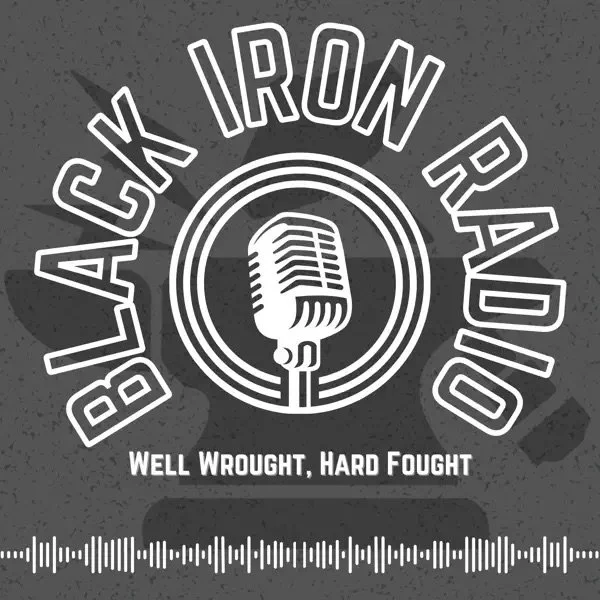So You Want to Start Tracking Macros
In this blog post, we’re breaking down the latest episode of Black Iron Radio, where coaches Maggie, Morgan, and Ryann walk through one of the most foundational tools in the nutrition world: tracking macros. Whether you’re brand new to it or just trying to clean up your approach, this conversation covers what macros actually are, why tracking them matters, and how to use them without letting perfectionism or pressure take over. If you’ve been curious about macros—or overwhelmed by them—this episode offers a straightforward, flexible, and mindset-first approach.
BLACK IRON RADIO EP. 254: SO YOU WANT TO START TRACKING MACROS
So you want to start tracking macros, but you’re not trying to obsess over every bite or hit your numbers perfectly every single day. Good. Because that’s not what we’re about. Maggie, Morgan, and Ryann break down what macro tracking actually looks like in real life, why it’s useful, when it’s helpful, and how to do it without losing your mind. They dig into common misconceptions, the mindset traps that mess people up, and why flexibility and context matter more than hitting perfect numbers. Tracking is just one tool in the toolbox (not a life sentence) and at Black Iron, it’s never required. Whether you’re curious, skeptical, or somewhere in between, this one’s for you.
📲 Listen & Subscribe: Apple Podcasts | Spotify
At Black Iron, we love a sexy, advanced topic as much as anyone, but sometimes you’ve gotta go back to the basics. This episode of Black Iron Radio is for anyone considering dipping their toes into macro tracking—or wondering if it’s even worth the hassle.
Spoiler: It is. But probably not in the way you think.
What Are Macros, and Why Should You Care?
Macros—short for macronutrients—are protein, carbs, and fat. They’re the foundational building blocks of what you eat. While calories determine whether your weight goes up or down, macros determine how you feel, perform, and look.
In other words: calories set the scale, macros set the vibe.
Most people who come to us aren’t eating enough protein. Many are undereating entirely. Others are chronically stuck in the “clean eating” trap, missing out on both performance gains and flexibility. Tracking macros helps you get curious instead of judgmental. You learn what’s actually in your food—and how your body responds to it.
Getting Started Without Getting Overwhelmed
If you’re brand new to tracking, don’t worry about nailing numbers on Day 1. We usually have clients log their food for a week with zero targets. Just observe. Learn. Get familiar with your portions, food choices, and patterns. Consider it journaling, with a nutrition lens.
Once we get that baseline, we calculate your maintenance needs (using formulas + coaching context) and build your macros from there. That first phase? Maintenance. Always. Expect to hang out there for 8–12 weeks while you and your body figure things out.
The Tools: Apps, Scales, and the Myth of Perfection
We’ve got opinions about tracking apps, and yeah, the team’s divided. Some coaches swear by MyFitnessPal for its database and food detail visibility (just don’t pay for Premium), while others ride hard for Cronometer or MacrosFirst. The best app is the one you’ll actually use—and that doesn’t gatekeep your ability to log dinner.
Same goes for food scales. Weighing your food in grams might feel obsessive at first, but it’s eye-opening. And no, we don’t expect you to bring a scale to date night. This is about education, not obsession. Learn what portions look like now so you can wing it confidently later.
Common Sticking Points (and How to Not Spiral)
The biggest tracking pitfalls? All-or-nothing thinking, food morality, and perfectionism.
No, you don’t need to be within 5 grams of your macros every single day to make progress. Yes, you can eat cookies. No, you’re not “bad” if you miss a day. Flexibility and consistency are what matter, not rigidity. We’re not trying to keep you in food jail—we’re helping you build a sustainable system that supports your actual life.
When to Track, When to Chill
If you’ve got a performance goal (think weight class, race, comp), we’ll get dialed. But if you’re in an off-season or maintenance phase? We might tell you to close the app altogether. Macros are a tool—not a forever thing.
Eventually, the goal is to graduate. Some clients move to a “macro-free” approach where they still check in with their coach, but don’t track daily. Others stay with us for light accountability because they like the structure. But we’ll never keep you tethered to tracking if it’s no longer serving you.
Final Thoughts
Macro tracking isn’t about being perfect. It’s about learning what your body needs, experimenting with what works, and building awareness around your nutrition without guilt. If you’ve been curious—or hesitant—know that there’s a way to track that doesn’t require spreadsheets, sacrifice, or skipping cake.
And if you want help doing that? We’ve got you.
🎙️ WANT MORE? SUBSCRIBE TO BLACK IRON RADIO!
If you enjoyed this conversation, check out more episodes of Black Iron Radio, where we cut through the noise and give you real, no-BS advice on feeling, performing, and looking your best. Each week we share practical nutrition, training, and wellness strategies and tips to help you succeed.
📲 Listen & Subscribe: Apple Podcasts | Spotify


